How Switzerland is committed to nuclear safety
From August 1-26, 2022, the 191 States Parties will meet in New York to review the Nuclear Non-Proliferation Treaty. Switzerland will participate in the conference with President Ignazio Cassis. The last conference was held in 2015 and can now only take place this year due to the Covid pandemic years.
Ralf Straub is a specialist in international nuclear energy at the Swiss Federal Office of Energy. He is a member of the Swiss delegation and will represent Switzerland in the thematic area of peaceful uses of nuclear energy (Pillar III) during the second as well as the third week at the UN headquarters in New York. What is his role and what is the significance of the conference, Energeiaplus wanted to know from him.
Energeiaplus: What kind of conference is this and is it important?
Ralf Straub: The Non-Proliferation Treaty (NPT) is the central pillar of the international nuclear security architecture. Every five years, the signatory states review the implementation of and compliance with the NPT. With the NPT and its three pillars, the international community is committed to reducing the risk of nuclear war and, in the longer term, eliminating it altogether.
It commits the five official nuclear weapon states P5 (China, France, Great Britain, Russia, USA) to disarmament (pillar I), provides the legal foundation for the non-proliferation of nuclear weapons (pillar II) and guarantees the peaceful use of nuclear energy (pillar III). For the international community of states, this conference is by far the most important negotiating vessel in the civil nuclear field.
What is the significance of the conference for international security?
The significance of the conference for international security is very significant. Disarmament of existing nuclear arsenals is currently difficult and stalled. There are still some 13,000 nuclear weapons in the arsenals of the official nuclear powers, the P5.
Switzerland wants to make a concrete contribution to international security and is committed to a world without nuclear weapons.
How do current events feed into the conference? The war in Ukraine?
The starting position for the conference has been complicated by Russia's military aggression against Ukraine. The war will certainly be one of the top issues because it challenges the global nuclear security architecture that has been in place for over 50 years. The conference has the potential to respond to these events and adopt measures. Challenging negotiations are expected.
Together with the International Atomic Energy Agency (IAEA) and with other states, Switzerland is committed to the recognition of basic safety standards. These standards must be adhered to in any situation - including violent conflicts - in order to prevent catastrophic consequences of nuclear incidents. This was reiterated by President Ignazio Cassis and IAEA Director General Rafael Grossi at a joint event on the sidelines of the conference.
How should we imagine your contribution at the conference?
Ralf Straub: Together with other delegation members, we represent Switzerland in Pillar III (Peaceful Uses of Nuclear Energy). We are committed to creating an environment that is conducive to nuclear cooperation and the use of nuclear energy for peaceful purposes. To this end, we are introducing a number of elements into the negotiations:
- The application of the highest standards of nuclear safety, security and safeguards activities. These are critical elements for the peaceful, civilian use of nuclear energy.
- The achievement of a sound nuclear nonproliferation regime and safeguards, including export controls, as also mentioned in Pillar II.
- Supporting the IAEA in scientific and technical nuclear cooperation. This promotes national development goals of countries and the Sustainable Development Goals (SDGs) of the UN.
- Continue to ensure the use of nuclear energy for peaceful purposes with a skilled workforce through expanded training opportunities, such as the IAEA's Marie Sklodowska-Curie Fellowship Program.
Globally, Switzerland is an important supporter of these elements and works closely with the IAEA in these areas.
This is the first time you are taking part in this review conference. What are your expectations of the conference?
During the past years, the States Parties consisting of nuclear-weapon states and non-nuclear-weapon states, have carefully prepared the conference. The preparations were driven by the mutual will to achieve constructive results. In 2022, there are other issues besides the current military conflict, such as the ongoing modernization of nuclear weapons or the fallow nuclear agreement with Iran, to name a few. I hope for constructive negotiations and that all states parties are aware of their responsibility for the NPT.
Why is Switzerland's participation in this conference important?
The NPT is the global cornerstone of nuclear arms control. The catastrophic humanitarian consequences that would result from the use of nuclear weapons are the main reason why Switzerland is strongly committed to their abolition. Switzerland therefore calls for a courageous dialogue, especially among nuclear-weapon states, aimed at achieving concrete results. The promotion of peace and security is one of Switzerland's top priorities. We are committed to facilitating dialogue and building bridges, including at this conference.
In November 2021, Switzerland joined the Member State Support Programme (MSSP) within the Safeguards Department of the International Atomic Energy Agency (IAEA). It was stressed at the time how important this was in view of the Review Conference. In what way?
Pillar II, the nonproliferation or nonproliferation of nuclear material is directly linked to IAEA safeguards activities and at the national level with countries. The proof or verification for non-proliferation of nuclear material must be verifiable and traceable. This is the main task of safeguards activities. The verification regime is thus the backbone of the global nuclear nonproliferation system. The constant strengthening of this system is a necessity.
The Nuclear Non-Proliferation Treaty, also known as the Treaty on the Non-Proliferation of Nuclear Weapons or the Nuclear Non-Proliferation Treaty, is an international treaty that addresses the prohibition of proliferation and the obligation to disarm nuclear weapons, as well as the right to the "peaceful uses" of nuclear energy.
The Nuclear Non-Proliferation Treaty was initiated by the five nuclear powers, the United States, France, the People's Republic of China, the United Kingdom, and the Soviet Union, and has now (2015) been signed or ratified by 191 states parties. Only four states did not become members of the NPT: India, Israel, Pakistan, and South Sudan. North Korea withdrew from the treaty in January 2003, and its final status has been kept open by the NPT community ever since.
Source: Wikipedia, https://de.wikipedia.org/wiki/Atomwaffensperrvertrag
The NPT clearly fulfilled its main purpose, averting the horror scenario expected in 1960 with more than 20 states possessing nuclear weapons. The peaceful use of nuclear energy guaranteed by the NPT with applications in energy, research, medicine or agriculture is also a success story. The balance sheet in the area of disarmament is mixed, especially since there are again contrary trends there today after significant reductions in the number of existing nuclear warheads toward the end of the Cold War.
Interview: Brigitte Mader, Communications, Swiss Federal Office of Energy
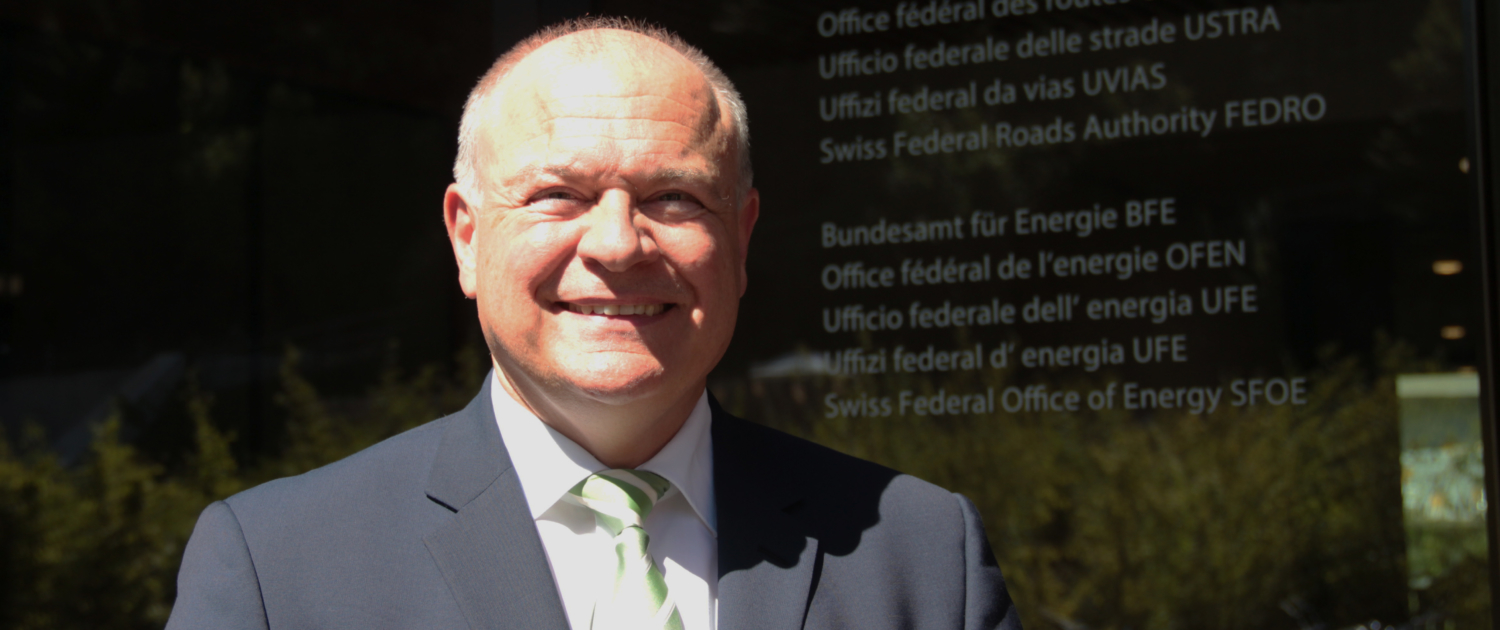 BFE - Brigitte Mader
BFE - Brigitte Mader
 2 Vote(s), Durchschnitt: 4,50
2 Vote(s), Durchschnitt: 4,50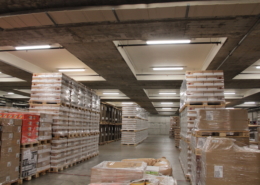 BFE - Brigitte MaderMit ProKilowatt Strom sparen: Das Beispiel Wander AG
BFE - Brigitte MaderMit ProKilowatt Strom sparen: Das Beispiel Wander AG 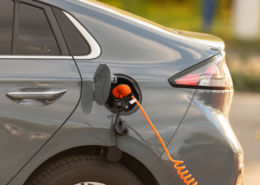 ShutterstockGesucht: Projekte für intelligentes Laden am Wohn- und Arbeitsort
ShutterstockGesucht: Projekte für intelligentes Laden am Wohn- und Arbeitsort 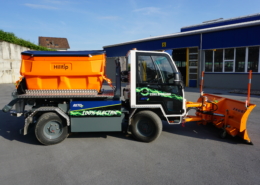 Viktor Meili AGSchnee pflügen oder Strasse wischen: E-Fahrzeuge sind immer gefragter.
Viktor Meili AGSchnee pflügen oder Strasse wischen: E-Fahrzeuge sind immer gefragter. 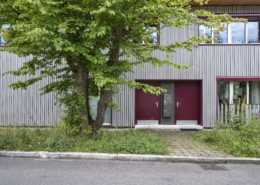 Manu FriederichLes chiffres 2023 du Programme Bâtiments : record à nouveau dépassé
Manu FriederichLes chiffres 2023 du Programme Bâtiments : record à nouveau dépassé 
 SuisseEnergie
SuisseEnergie shutterstock
shutterstock
Neuste Kommentare